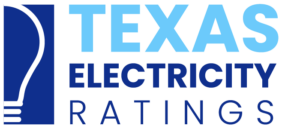The JD Power & Associates group has released their most recent survey of the deregulated electricity providers operating in Texas. In their own words:
The study, now in its fourth year, measures customer satisfaction with retail electric utility providers in Texas by examining four key factors (listed in order of importance): price; billing and payment; communications; and customer service.
You can view the full results here, but I’d like to run down some of my thoughts about the winners and other participants below.
First, congratulations to Champion Energy, who has now won the award for a 2nd straight year. Their presence and reputation in the market continues to be excellent, and this survey supports that. Their score was a 745/1000. Landing in the 2nd spot was Spark Energy, which is their highest showing yet in this survey, with a score of 740/1000. Rounding out the top 3 was StarTex Power, a mainstay in this yearly poll, with a score of 739/100. As an interesting factoid, all 3 of these retail electricity providers are headquartered in Houston, Texas. And I’m personally proud to say that all of the top 3 REPs are also partners with Texas Electricity Ratings.
Other Texas Electricity Ratings partners fared well on the survey. Amigo Energy, Direct Energy, and Dynowatt all scored 4 out of 5 in overall customer satisfaction, as did Green Mountain Energy and Gexa Energy. Bounce Energy also scored a 4 out of 5 in overall satisfaction, which is extremely impressive considering this is their first year on the survey.
The incumbent electricity providers, TXU and Reliant, did not fare well at all on the survey. TXU Energy was rated last of all providers surveyed, with 2 out of 5 for overall customer satisfaction. Reliant Energy scored 3 out of 5.
I would encourage everyone to read the full press release, and it’s certainly worth reading, but I’m pasting almost the entire thing in this post anyway. Some more interesting facts from the PR below, with my thoughts:
Overall satisfaction among residential customers of electric retailers in Texas has increased to 659 on a 1,000-point scale in 2011—up by 25 points from 2010 and 30 points from 2009. While satisfaction has improved in 2011 in all four factors examined in the study, satisfaction with price improves most notably to an average of 644, increasing by 34 points from 2010. During the past several years, customer-reported bill amounts have declined steadily from a median of $167 in 2009 to $156 in 2010 and $150 in 2011. These price decreases are primarily due to declining natural gas prices.
Well, this seems to contradict Recharge Texas’s hilariously off-base statements about Texans being dissatisfied with deregulated electricity, which I already broke down: here.
Satisfaction with the billing and payment factor has also improved considerably, up 31 points from 2010. Contributing to this increase is a shift in payment methods, with a higher proportion of customers choosing to pay their utility bill electronically rather than by mail. Approximately 46 percent of customers indicate paying their bill either through a financial institution or utility website, while 23 percent of customers mail their payments. Satisfaction among customers who use online and electronic payment methods (recurring bank or credit card debits) is considerably higher than among customers using traditional methods (mail, phone or in-person payment).
I personally think this is a huge deal. It illustrates perfectly the kind of innovation that has been forced onto the market by competition. Not only for online bill pay, but mobile applications and any other kind of innovation that has taken place in the past 9 years. Competition forces companies to stay at or ahead of the curve, if possible. Some regulated electricity providers in other states don’t even have online bill pay yet.
And some final snippets:
It pays to shop around before deciding on an electric retailer. Customers who consider more than one electric retailer are substantially more satisfied than those who only consider one retailer. It may be tempting to choose a retailer based solely on low prices, but this could result in being less satisfied. Customers who choose their retailer based on good customer service are notably more satisfied than those who make their decisions based on low price, reputation, past experience with a retailer or recommendations from family or friends. Select your payment plan carefully. Customers who opt for a fixed rate plan—which guarantees a set rate during the entire length of the contract—are much more satisfied than customers who choose a variable price plan. If you’re dissatisfied with your current electric retailer, consider switching. Among customers who rated their previous provider as “unacceptable” (one point on a 10-point scale) and switched to a new provider, satisfaction soars to an average of 747—nearly 90 points higher than the industry average.
